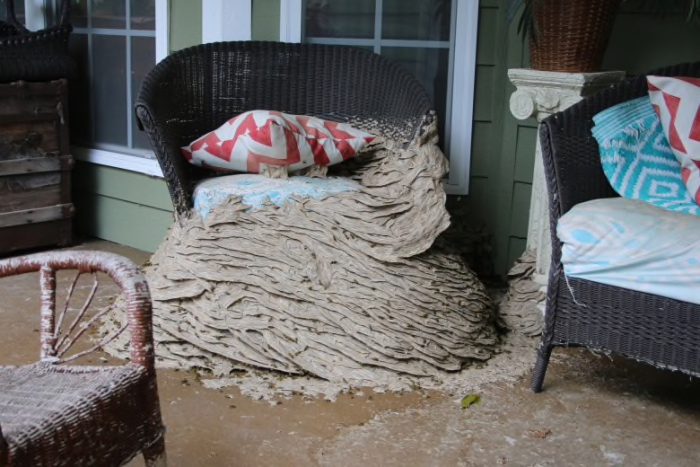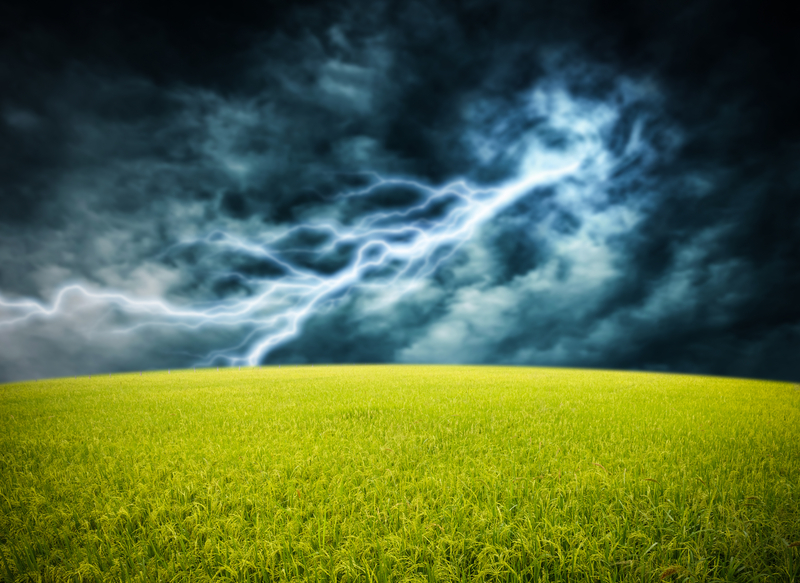If stinging insects are something that you fear, you might want to be careful in Alabama this summer.
Because super wasp nests are back.
Whoa. What are 'super wasp nests'? And what do you mean, 'back'?
Let's start with just what wasps are and how they live.
Wasp up, wasps?
A typical yellow jacket nest. (Getty Embed)
Wasps are species of social nest-building flying insects that include yellow jackets and hornets. These tiny—and very important—predators live in colonies that are very similar to those of bees, termites, and ants. And these colonies are formed like so.
Every spring, a queen starts a nest. Then, she starts a colony. Eventually she'll give birth to thousands of offspring—workers and soldiers that in turn hunt for food and further build a home for the ever-growing colony. They build them by softening plants into a paste with their saliva, then shaping it into paper structures.
Many new young queens are also born in this colony. In the end, all of this insect industry is done in the hope that at least one of these queens will survive the winter, starting the whole process again.
Because that is the harsh reality of bug life. These tiny critters are simply not equipped to survive winter (even the timid winters of the American south).
Winter warmer-land

A super nest from 2006 in Alabama. (Alabama Co-operative Extension System)
But what if a winter is really warm? What if it was warm enough that not just one queen survived, but several? How about dozens? Or hundreds...
That is what is happening in Alabama right now. Following an unusually warm winter, nests have started the season with over a hundred queens in a single nest. The result? Super wasp nests.
This already happened once, back in 2006. Then around 90 of these enormous nests were discovered across the state. Now it looks like the summer of the super nests has returned.
According to entomologist (bug expert) Charles Ray of the Alabama Co-operative Extension System, around 19 have been discovered so far. And that number is likely to grow. Speaking of numbers, the population possibilities in these nests are quite mind-boggling.
A typical wasp nest would not get much more than 4,000 individual wasps. In 2006, these super nests averaged around 15,000. And there were even reports of an enormous one that contained 250,000 wasps.
Nothing to fear. Really!
This electron microscope picture enlarges the surface of a wasp nest by 38 times. Kind of beautiful, right? (Getty Embed)
That is a lot of stinging insects to handle. But experts like Ray insist that even though wasps can be aggressive and are dangerous, they just wish to be left alone. He has personally inspected dozens of super nests up close and never been stung. The wasps only attacked those who attempted to destroy their nests.
(Which makes sense when you think about it — they worked hard on their homes!)
And speaking of those nests, they are pretty incredible. Just think of the energy that it takes for creatures so small to make something so large. As Ray described them to CBC radio, the nests "look like a river of paper flowing".
Even if you'd rather just admire them from a distance, they really are something to behold!
 "So hot outside... I'm going to have seat down right h— WHOA! No, I'm not!" (Alabama Co-Operative Extension System)
"So hot outside... I'm going to have seat down right h— WHOA! No, I'm not!" (Alabama Co-Operative Extension System)










It´s nice to know they don´t really attack people for no particular reason 😀
😯
I always thought hornets were a different bug 😮
hummmmmmmm 😐
That’s so cool
WASPS COOL!
I thought they go out of their way to attack us, good thing they don’t. I still dislike wasps, hornets and yellow-jackets since they don’t do much for the environment. Bees are amazing though.
I like bees but I run away from them. Wasps are another thing. I will scream and lose my mind, but it’s nice to know more about them so I probably won’t freak AS much as I normally would :p